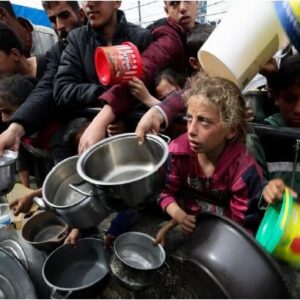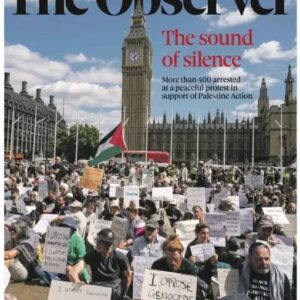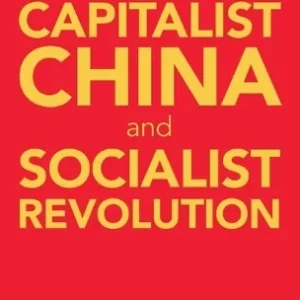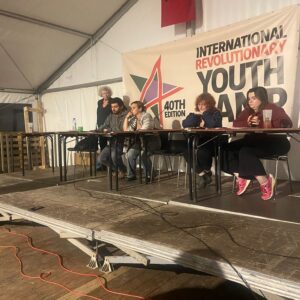The events of June 23-24 are already being described as the most serious domestic political challenge to Putin’s regime. In a matter of hours, Wagner units managed with little resistance to take control of Rostov-on-Don and Voronezh, major cities in southern Russia. They even got a few hundred kilometers outside of Moscow. By announcing the start of a military rebellion, Wagner leader Yevgeny Prigozhin openly challenged the necessity for a full-scale invasion of Ukraine, demanded the removal of Russia’s military leadership, and claimed his goal was the restoration of “justice.” And while the conflict was resolved with little blood it seems to have forever undermined Putin’s promise of stability and regime’s unity.
There’s no doubt Prigozhin is a war criminal and an opportunist pursuing his personal interests. In the months leading up to the mutiny, Prigozhin made numerous statements bashing the Russian military leadership trying to take control of Wagner units staffed by both former Russian prisoners and retired army officers. Yevgeny Prigozhin, who owes his career to Putin’s patronage and has extensive connections in the state security apparatus, has turned out to be the most aware of the regime’s weaknesses and the vulnerability of Putin’s “chain of command.” Generals Surovikin and Alekseev, who have played key roles in the so-called “special military operation” in Ukraine, publicly called on Prigozhin to “come to his senses” and “resolve the matter peacefully.” Most of the army stood in silent neutrality toward the rebels. Defense Minister Sergei Shoigu and Chief of the General Staff Valery Gerasimov, whom Prigozhin demanded to meet, never commented on what was happening and disappeared. Note that the leaflets distributed by Wagner not only called for their resignation, but also for an immediate court martial for Shoigu and Gerasimov on accusations of the brutal treatment of soldiers, poor supplies to the army, and concealing the truth about the course of the war.
On the morning of June 24, Vladimir Putin delivered an urgent five-minute address to the nation. He called Wagner’s rebellion a “stab in the back” of the Russian army but did not mention any specific actions to crush it down. Putin highlighted the moral and political dimensions of the mutiny and called it a betrayal deserving of the harshest response. He blamed the mutineers for putting Russia on the brink of civil war and military defeat. Yet, the Russian president did not mention any names, revealing his poor preparedness and uncertainty about the situation. Several thousand-armed columns of the Wagner fighters crossed a vast distance in less than a day and voluntarily stopped 200 kilometers short of Moscow. At the same time, President Putin, presumably, rushed out of the capital, recording his addresses from his remote country residence in Valdai. Regional governors and pro-Kremlin politicians swore allegiance to the president and the constitutional order on social media only a few hours after the mutiny’s outbreak.
Predictably, some forces, factions, and citizens did not follow the president’s call to resist the traitors and expressed their support for the rebels. These include neo-Nazis on both sides of the front: the Russian Volunteer Corps fighting alongside the Ukrainian armed forces and the Rusich sabotage group, which has been engaged in armed conflict with Ukraine since 2014 as a Russian proxy. Prigozhin responded unambiguously to Putin’s message. He stated that the president was “wrong” about Wagner’s betrayal, called himself and his fighters “patriots of the motherland,” accused Moscow officials of corruption, and refused to back down. Seeking to expand his support, Prigozhin voiced two hallmark claims of the anti-Putin opposition: Russian regions should oppose Moscow for expropriating the country’s resources and the Russian leadership is made up of crooks and corrupt officials and should be exposed and brought to justice.
Despite Prigozhin relying solely on the armed units, the program he announced was supposed to lend popular legitimacy to the coup d’etat. People in Rostov-on-Don cheered Wagner’s fighters as heroes, demonstrating that Prigozhin’s slogans could gain mass support. The attempted Wagner mutiny also revealed the unwillingness of the security services to actively intervene in the situation.
Prigozhin’s “march of justice” ended as unexpectedly as it began. The Belarusian dictator Lukashenko brokered an agreement between Wagner and the Kremlin. According to its terms, Prigozhin was to withdraw his units and the mutineers were to be spared punishment for their alleged “feats of arms.” The agreements with Lukashenko also seem to include secret provisions granting Wagner certain autonomy and defining the framework for further relations with the military leadership. The deal was guaranteed by the “word of the President of Russia,” as Putin’s spokesman Dmitry Peskov later stated. In other words, the public is kept in the dark as to the terms and content of these unofficial agreements. Although all Russian military units and ordinary citizens were called upon to participate in the mutiny and to resist the rebels, the crisis was resolved by a conspiracy between two war criminals with the Belorussian autocrat playing the role of both a broker and an umpire.
While the consequences of these events are difficult to predict, it’s already clear that they have forever changed Putin’s political system. If this attempted military insurgency was so successful, why can’t this example inspire future attempts to build on its success? Contradictions within Russia’s elites have spilled over from the media into the reality of Russian cities and the armed forces. The whole world has witnessed that they were (temporarily) resolved outside any legal framework with the compromise guaranteed by Putin’s “word.” In Russia, the rule of law has given way to mafia codes. Words backed up by violence are stronger than the prosecutor’s office or even the president’s declarations of imminent punishment. The war unleashed by Putin’s regime is becoming an ever more apparent threat to its stability and will inevitably result in its eventual collapse. What form will this breakdown take? And could Russia’s intimidated and disempowered masses come to the fore? These questions remain open.
Source >> Posle
Art (54) Book Review (122) Books (114) Capitalism (68) China (81) Climate Emergency (98) Conservative Government (90) Conservative Party (45) COVID-19 (44) EcoSocialism (56) Elections (83) Europe (46) Fascism (57) Film (49) Film Review (68) France (70) Gaza (61) Imperialism (100) Israel (127) Italy (46) Keir Starmer (54) Labour Party (111) Long Read (42) Marxism (49) Marxist Theory (48) Palestine (173) pandemic (78) Protest (152) Russia (340) Solidarity (145) Statement (48) Trade Unionism (142) Ukraine (347) United States of America (133) War (368)
The Anti*Capitalist Resistance Editorial Board may not always agree with all of the content we repost but feel it is important to give left voices a platform and develop a space for comradely debate and disagreement.
Latest Articles
- Starvation = Genocide (Broadsheet)The genocide in Gaza must end! A new Anti*Capitalist Resistance broadsheet by Roland Rance examines the continued slaughter and the repression of solidarity efforts.
- Labour, tough on Grannies, easy on genocideDave Kellaway reports on the protests on Palestine and the proscription of Palestine Action last weekend.
- Capitalist China and socialist revolutionAn introduction to how China has developed into a capitalist country whilst keeing its authoritarian leadership, and its emergence as a new imperialist power. [Published in 2023]
- Action for PalestineSolidarity with the victims of genocide in Palestine is happening throughout the country, but the political class has shown itself to be unable to stand against this monstrous crime. Allan Todd reports from a rally in Cumbria.
- A small slice of self‑organised socialismFrom 19- 25 July, a delegation of 7 young ACR comrades attended the Fourth International’s 40th Youth Camp in Belgium. We travelled together from London before convening with the Scottish delegation for the rest of the journey through the Belgian countryside, all the way down to Virton, Belgium explain Paris Wilder and Jess MacKenzie.






